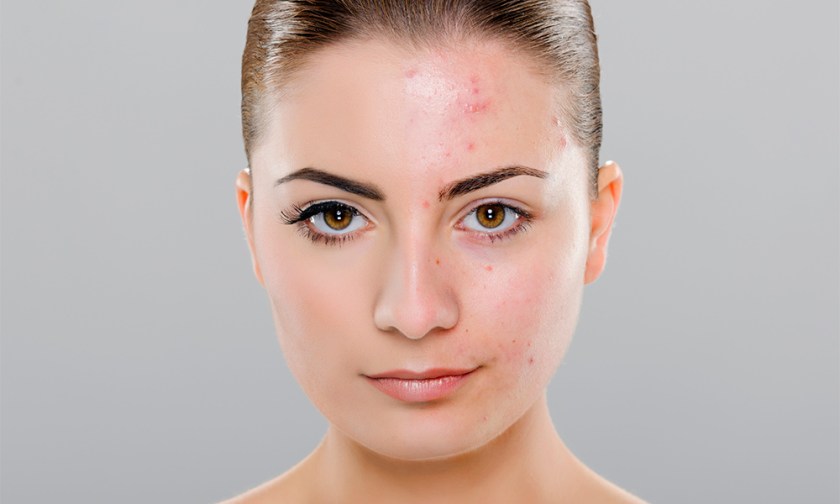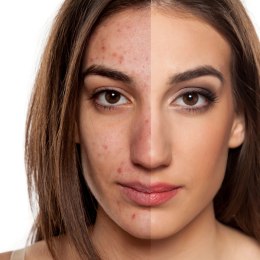As a dermal therapist, how many acne sufferers have you seen trapped on the antibiotic treadmill? Who’ve not only had no longterm improvement in their symptoms (indeed, they may have gotten worse) but have experienced backlash from unnecessary or overuse of antibiotics?
Among these consequences are that antibiotics can upset sensitive gut flora* and can help teach good bacteria to go bad**.
Above all, overusers can develop antibiotic resistance. This means if they develop a serious medical condition, these potentially life-saving drugs are no longer effective.
Antibiotic prescriptions have long been a recourse by medical profession in the treatment of acne. This thinking is now changing; information you should be armed with to share with your clients, especially when you are dealing with still-developing teens …
The Australasian College of Dermatologists (ACD) today announces its support of Choosing Wisely Australia, the initiative of NPS Medicinewise that enables health providers, consumers and healthcare stakeholders to start important conversations about unnecessary tests, treatments and procedures, where evidence shows they provide no benefit.
As part of the ACD’s new partnership with Choosing Wisely Australia, two of the ACD’s five recommendations introduce new guidelines to ensure the appropriate use of antibiotics in epidermal cysts and acne vulgaris.
“One of the challenges of modern medicine is that, with the complexity of tests, treatments and procedures, not all add value to the patient,” says associate professor Chris Baker, President of the ACD.
“For instance, antibiotic resistance – when bacteria change so antibiotics are no longer effective and may not be useful to treat infections in the future – is a major issue in healthcare and has consequences worldwide.
“We found that, when identifying examples of unnecessary treatments in the dermatology area, antibiotics came up a few times and, as a result, we are outlining new guidelines.”
The ACD recommends caution before doctors prescribe antibiotics in these skin conditions:
Acne vulgaris
Systemic antibiotic monotherapy should not be prescribed for acne vulgaris. To reduce further development of antibiotic resistance, combine with topical antiseptics such as benzoyl peroxide. Differentiating acne vulgaris from other forms of folliculitis is necessary prior to instituting acne therapy.
Epidermal cysts
Antibiotics should not be prescribed for inflamed epidermal cysts unless infection is confirmed via microbiology test results. These inflammatory cysts are rarely infected. In most cases, the redness, swelling tenderness is secondary to inflammation caused by the cyst contents and will respond to incision and drainage plus/minus intralesional corticosteroids.
“For some conditions, antibiotics aren’t always the best treatment available,” says Chris Baker. “More than 50 percent of Propionibacterium acne species are resistant to the tetracycline and macrolide antibiotics used in the treatment of acne.
“The antibiotics do, however, have a therapeutic anti-inflammatory effect in acne even though their antibacterial efficacy is diminished as a result of the emergence of resistant strains.
“Topical benzoyl peroxide has an antibacterial effect so using the two agents together allows us to continue to treat mild to moderate acne.”
THE DOWNSIDE OF ANTIBIOTICS
* Antibiotics Can Upset Sensitive Gut Flora
Your intestines contain around 100 trillion bacteria of various strains. While some can be deadly, there’s a natural balance in the gut that can be thrown out of whack by antibiotics. These helpful bacteria, known as gut flora, support immunity and proper digestion. Aggressive antibiotics, while helpful if you have a serious infection, can wipe out many good gut bacteria while leaving those immune to antibiotics to flourish. Many people are vulnerable to unwelcome side effects of unnecessary antibiotics, including lasting changes to their gut flora.
** Antibiotics Help Teach Good Bacteria To Go Bad
Bacteria have evolved defenses against antibiotics through the process of horizontal gene transfer. Essentially, bacteria don’t need to reproduce to pass along their genetic protection from antibiotics. They can simply pass along these genes to fellow bacteria like students passing notes in a classroom. One study found that bacteria passing through the colon can transfer their resistance genes to other forms of bacteria.
SOURCE: HEALTHLINE




